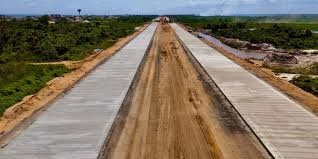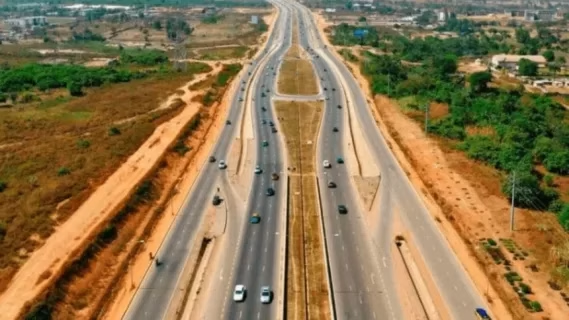The construction of Nigeria’s multi-billion-dollar Lagos-Calabar coastal highway project is one that is stilled mired in controversy. Nigeria’s Federal government has been bold to introduce various projects that they have deemed would be helpful, especially in the transport sector. Projects such as the country’s ambitious $60 billion high-speed rail project and the Sokoto-Badagry super highway highlight this commitment. However, despite these advances, the 1,000-kilometer Lagos-Calabar coastal highway remains shrouded in mystery. The road project has been in the pipeline since the 1970’s but has made little to no advancements due to the setbacks it faces.
One such setback is the criticism and resistance it faces. The construction of the highway is expected to alter landscapes and displace communities. Moreover, it will threaten biodiversity as it advances along eroding coastlines. It will also traverse along the ecologically sensitive Niger Delta. Environmentalists oppose the project as the conservation of the Niger delta is one that has had to endure decades of oil pollution. For these reasons, construction has encountered fierce resistance.
Project Factsheet:
Significance:
- Nigeria’s most ambitious transport project, worth $11 billion.
- Aims to increase trade, tourism, and connectivity between Calabar and Lagos.
- Faces environmental opposition because of fears of displacement and loss of biodiversity in the Niger Delta.
Scope of Implementation
- To be constructed as a 1,000-kilometer, six-lane coastal highway.
- Flood-resistant building material and sun-powered streetlights.
- Ocean-view sidewalk, underground drainage system, and sea wave protector.
- There will be an integrated transport railway line parallel to the highway.
Developer:
- Guided by Nigeria’s Federal Government with Hitech Construction Company as the prime contractor.
- Financed by federal-level transport projects like high-speed rail and other coastal roads.
- Early construction commenced with demolitions clearing 750 structures in the initial 100 km segment.
Financing:
- Estimated total cost of project at $11 billion.
- Federally funded primarily and via public-private partnerships.
- Investment defined as a key component of Nigeria’s broader infrastructure rehabilitation.
Challenges:
- Criticism over mass-scale demolitions and forced relocation of coastal cities.
- Resistance on environmental grounds by environmentalists claiming the Niger Delta ecosystem is being threatened.
- Long-lasting disputes over destroyed properties, like multi-million-naira hotels.
- Public skepticism of delivery, taking into account project delays as it was first conceived in the 1970s.
Scope of Implementation on the Lagos-Calabar Coastal Highway Project
The scope of implementation on the Lagos-Calabar coastal highway project features the construction of a six-lane highway. Moreover, it will be constructed from flood-resistant materials. It will also feature solar-powered streetlights. A railway line is also part of the scope as it will run alongside the road. The highway will include a pedestrian walkway with ocean views, an underground drainage system and an ocean wave protector. Construction of the project had already began this year. However, by the time the demolitions were complete, around 750 structures in densely populated areas of this coastal state had been cleared.

The demolitions paved way for the first 100 kilometers of the road east towards its destination in the Niger delta city of Calabar to advance. The remaining 700 kilometers to its destination is causing uproar, as many fear their way of life will be adversely disrupted by the project. Features such as a popular multi-million-naira resort which was levelled has caused uproar. There is much to anticipate about the multi-billion-dollar project despite the setback, with Hitech Construction Company picking pace to ensure the project’s delivery.

Leave a Reply